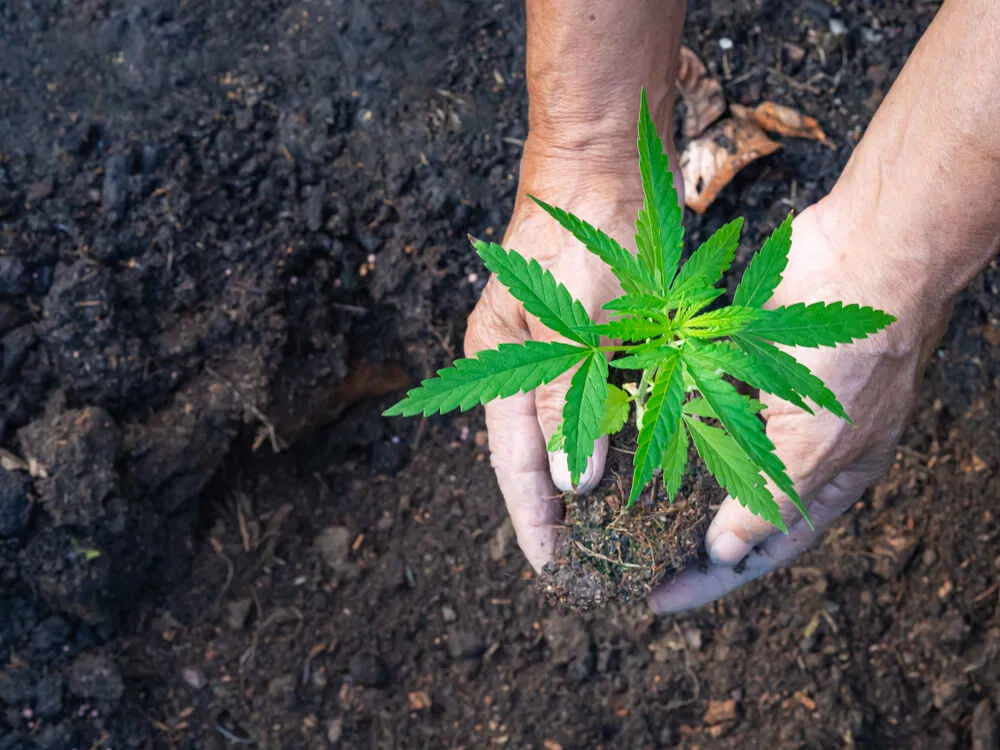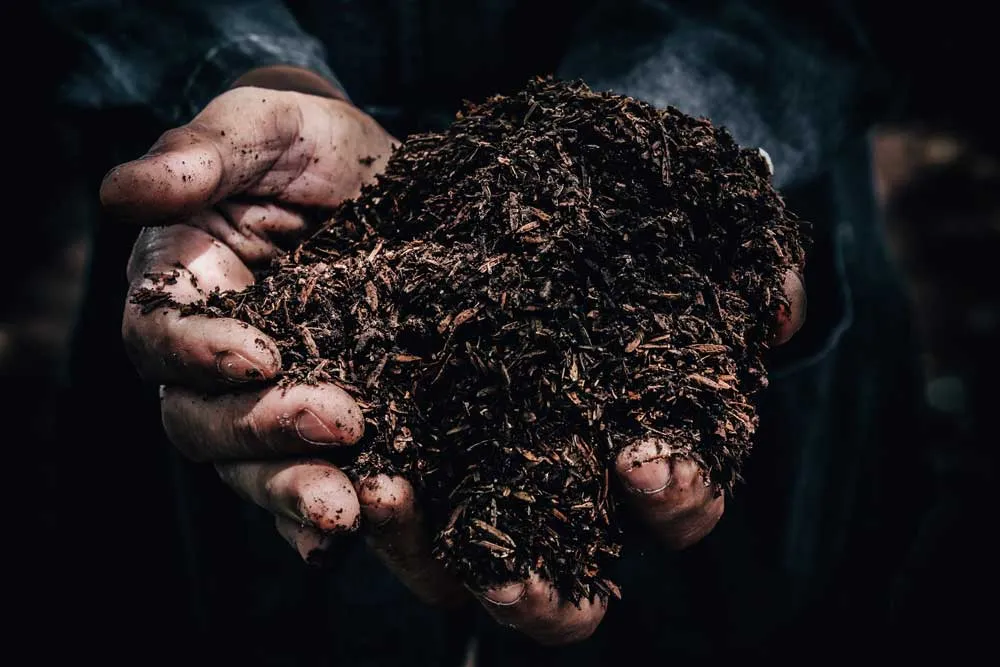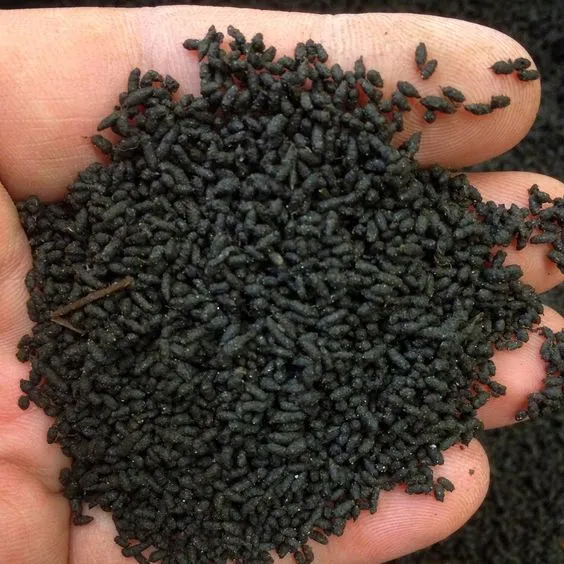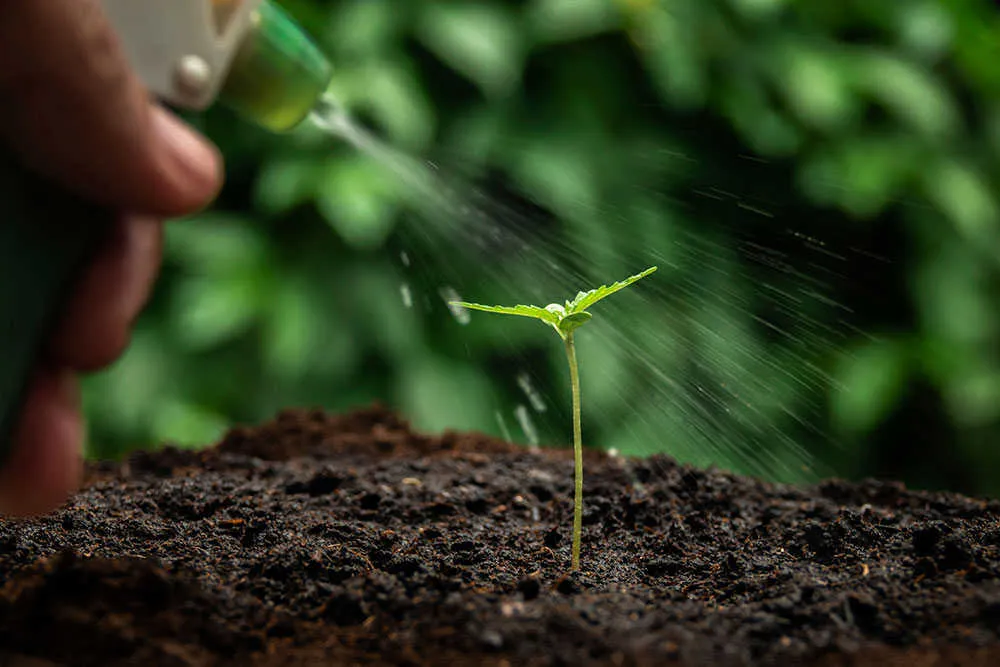What is the best soil for autoflowers?

Autoflowering cannabis plants are a growers delight with their rapid growth, compact size, and reduced light requirements. Yet, one critical factor for success often gets overlooked: the soil. An optimal growing environment starts with the right soil and for autoflowers, this is no exception. Spoiler alert, the best soil for autoflowers is light, airy, and rich in organic matter. But hold on, there's much more to it than just that.
This blog post will demystify the world of autoflower soils, examining the key ingredients and qualities to look for, as well as exploring what to use for home-made options. We'll also cover some essential dos and don'ts in soil preparation and how to strike that perfect balance between water retention and drainage. Get ready for a crash course in perfecting your autoflower soil game!
What Type of Soil Mix Can You Use for Autoflower seeds?
When you're growing autoflowers, one of the primary decisions that you must make is choosing the appropriate soil mix. There are several types of soil mixes to choose from, each with distinct qualities and benefits that can contribute to the successful growth of your autoflowers. In the wide-ranging world of soil, key elements such as organic matter, coco, perlite, and vermiculite play a crucial role in crafting the ideal blend for your plants.
Organic Soil and Super Soils
Organic soil is a fertile growing medium teeming with life, derived from plant and animal matter. This natural decomposition process results in a soil rich in essential nutrients. Ingredients such as worm castings, compost, peat moss and many more can all be part of organic soil. Such a complex ecosystem fosters healthy plant growth by supplying nutrients gradually and improving the soil structure.

In essence, super soil is an upgraded version of organic soil. It involves enriching organic soil with additional components such as bat guano, blood meal, bone meal, and other organic materials, creating an exceptionally nutrient-dense medium. This provides autoflowers with a robust nutritional base, eliminating the need for synthetic fertilizers. The result? Vigorous plants that have everything they need to thrive from the soil itself.
Both organic and super soils have their unique advantages. These include supporting steady nutrient release, fostering healthier roots by improving soil texture, and enhancing moisture retention. Additionally, they help develop the flavor and aroma profile of your autoflower plants, as organic matter contributes significantly to terpene synthesis, the compounds responsible for cannabis' distinct scent and flavor.
Living Soil
Living soil goes one step further, building on the foundation of organic soil and creating a self-sustaining, dynamic soil ecosystem. It’s like simulating nature in a pot, where the soil teems with microbial life, including beneficial bacteria, fungi, and earthworms. The microbial activity breaks down organic matter into bioavailable nutrients for your autoflowers.
The virtues of living soil are many. By establishing a healthy microbial community, it promotes superior root health and more efficient nutrient uptake. It also offers natural disease resistance, with beneficial microbes inhibiting the proliferation of harmful pathogens.
Coco, perlite, and vermiculite are popular additives in living soil mixes. Coco, made from the fibrous husks of coconuts, aids in water retention and provides a favorable environment for root development. Perlite, a volcanic glass, enhances aeration and drainage, keeping the soil light and preventing water-logging. Vermiculite, a mineral that expands when heated, also improves soil aeration and water holding capacity, while also being rich in several important minerals.

Whether you opt for organic soil, super soil, or living soil, the choice largely impacts the success of your autoflowering cannabis cultivation. Understanding these different types of soil and their benefits helps you make an informed decision, setting your autoflowers up for a thriving growth cycle. Remember, the best soil mix is one that caters to the specific needs of your autoflowers, balancing water retention, aeration, and nutrient supply for optimal growth.
Best Soil for Growing Autoflowers Outdoors
Autoflowering cannabis thrives both indoors and outdoors, but each setting presents its unique set of considerations. Growing outdoors exposes your plants to the whims of nature, necessitating a robust and adaptable soil mix to ensure your autoflowers flourish. Factors such as watering frequency, drainage, sunlight intensity, pests, and wildlife significantly influence the type of soil best suited for outdoor use.
Watering and Water Retention in Autoflower Soil Mixes
When cultivating autoflowers outdoors, a key aspect to consider is the soil's ability to retain and manage water effectively. This is crucial as autoflowers have a compact root system, and excessive water can lead to root rot and other complications.
A well-balanced soil mix will retain just the right amount of water—enough for your autoflowers to draw from, yet not so much as to cause waterlogging. In addition, good soil should also provide essential nutrients that your autoflowers need to grow. Here, components like coco, perlite, and vermiculite come into play.

Coco coir enhances water retention, ensuring your autoflowers have a steady supply of water. Perlite and vermiculite, on the other hand, enhance soil aeration, preventing water-logging, and creating a favorable environment for roots to grow and breathe.
Moreover, a good soil mix helps reduce the frequency of watering needed, which is particularly beneficial for outdoor grow, given the challenges in controlling natural elements like rainfall and evaporation.
In essence, the right soil mix optimizes water management, ensuring your autoflowers stay hydrated, well-nourished, and free from root diseases.
Best Soil for Growing Autoflowers Indoors
The narrative changes when you move indoors. Indoor cultivation allows you to control environmental variables to a far greater degree than outdoor cultivation. However, the soil remains a critical component of your grow operation. While factors such as sunlight and pests become less of a concern indoors, the importance of choosing the right soil mix cannot be overstated.
Indoor cultivation allows you to fine-tune the growing conditions to meet your autoflower’s exact needs. Consequently, the soil must be carefully selected to match these controlled conditions. The best soil for indoor autoflowers should offer excellent water retention and drainage, robust nutrient content, and good aeration for root health.
Coco coir, perlite, and vermiculite are equally important in indoor soil mixes. Coco coir’s water retention qualities ensure the plants have access to water as needed. Perlite and vermiculite promote root health by improving soil aeration and water management.
Additionally, indoor soils can be fortified with organic materials, such as worm castings, bone meal, or bat guano, to provide a steady supply of nutrients throughout the autoflower's life cycle.
Ultimately, the best soil for autoflowers—be it indoors or outdoors—depends on balancing various factors. These include water management, nutrient supply, and aeration, along with the specific growing conditions and the unique needs of your autoflowers. With the right soil mix, your autoflowers can thrive, producing a bounty of potent, aromatic buds that reflect your time, care, and expertise.
Best Nutrients for Autoflowering weed in Soil
Autoflowers are unique in their rapid growth and compact size. Their short life cycle means they need an optimized nutrient schedule to achieve their full potential. While soil plays a fundamental role in nourishing your plants, additional nutrients may be needed to supplement your soil and propel your autoflowers to their peak.
Autoflowers in soil thrive on a balanced diet of macronutrients—Nitrogen (N), Phosphorus (P), and Potassium (K)—and micronutrients like Calcium (Ca), Magnesium (Mg), and Iron (Fe). Nitrogen is crucial during the vegetative phase for leaf and stem growth, while Phosphorus and Potassium are essential during the flowering stage for bud development.
Additionally, the inclusion of organic matter such as worm castings, bat guano, or bone meal can boost the soil's nutrient content and enhance plant growth. Remember, nutrient balance is critical. Overfeeding can harm your plants as much as nutrient deficiency.
Also, when cultivating in soil, it's important to monitor pH levels. Autoflowers prefer slightly acidic soil (pH 6.3-6.8). Proper pH levels ensure optimal nutrient absorption, preventing deficiencies and maximizing growth.

Is Miracle Grow Good for Autoflowers?
No, simply put you should never use Miracle-Grow for weed. Miracle-Gro is a popular fertilizer brand among many gardeners. However, when it comes to cultivating autoflowers, the answer isn't quite as straightforward.
Autoflowers have specific nutrient needs that differ from other plants. They're sensitive to nutrient strength, preferring a lighter feeding schedule compared to their photoperiod counterparts. Miracle-Gro products tend to be high in Nitrogen and may be too potent for autoflowers, particularly during the flowering phase when the plants need less Nitrogen and more Phosphorus and Potassium.
That said, if used carefully and sparingly, some growers have had success with Miracle-Gro products. It's best to start with a reduced dose and monitor your plants for any signs of nutrient burn. Keep in mind that there are also many cannabis-specific nutrient lines available that are designed with the specific needs of cannabis plants in mind.
Another critical point to consider is that Miracle-Gro doesn't offer the same level of control as organic soil enriched with coco, perlite, and vermiculite. These components not only provide physical structure to the soil but also play vital roles in water and nutrient management. Coco, for instance, has excellent water retention capabilities, and perlite and vermiculite enhance aeration and drainage, all crucial for healthy root development and overall plant growth.
In conclusion, when cultivating autoflowers, it's essential to understand the nutrient needs of your plants and the components that make up your soil. With the right blend of soil, nutrients, and attentive care, you'll be well on your way to cultivating thriving, productive autoflowering plants.
Conclusion:
In summary, the choice of soil significantly impacts the success of cultivating autoflowering cannabis plants. Light, airy, and organic-rich soils, whether organic, super, or living, are the ideal choices, each offering unique advantages. When growing autoflowers outdoors, consider the soil's water management capabilities due to unpredictable weather conditions. For indoor growth, ensure the soil matches the controlled environment and offers excellent water retention, drainage, and aeration. Nutrients are essential to autoflowering plants due to their rapid growth, needing a balanced diet of macronutrients and micronutrients. Always monitor pH levels to guarantee optimal nutrient absorption. Choosing the right soil blend and nutrients, while providing careful monitoring, will lead to thriving and productive autoflowering cannabis plants.
-
20+ Years Experience
Over 500K seeds sold worldwide
100K+ Happy Customers -
Germination Guaranteed
Complete satisfaction or we will replace your order -
Dutch and USA Genetics
Master breeders inspiring strains from across the world -
Express Shipping
Free tracked express shipping 1-5 day delivery








